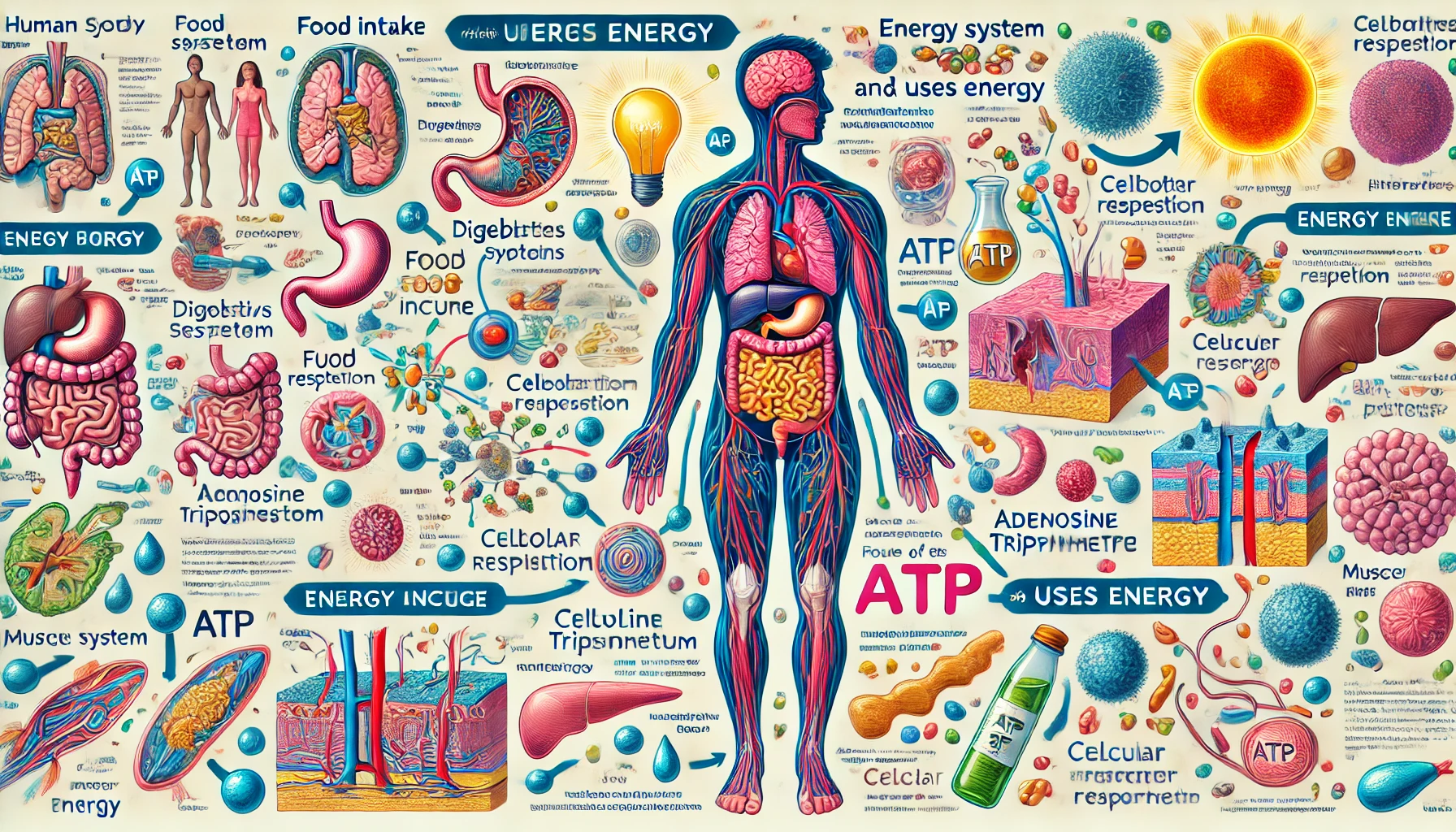Have you ever wondered, what does human earngey need to function at its best? At first glance, this question might seem simple, but it delves into fundamental aspects of human life and well-being. From physical energy for daily tasks to the psychological boost for emotional stability, humans require a variety of resources to maintain balance and productivity. This article explores the fascinating components of “earngey” (a term we interpret as a unique concept blending energy, needs, and growth). Let’s dive deep into the pillars of human energy needs, the factors that influence them, and how we can harness them for a better quality of life.
Understanding Human Earngey
To answer the question, “what does human earngey need,” we must first define the concept. Human “earngey” can be seen as the combination of physical, mental, and emotional energy required to live, work, and thrive. While traditional discussions focus solely on energy, earngey encompasses a broader perspective, including emotional resilience, spiritual growth, and environmental sustainability.
Key Elements of Human Earngey
- Physical Energy: Derived from food, water, and physical activity.
- Emotional Energy: Stemming from relationships, self-expression, and fulfillment.
- Mental Energy: Boosted by learning, creativity, and problem-solving.
- Environmental Factors: Clean air, safe surroundings, and access to resources.
Each of these components is interconnected, forming a holistic approach to understanding human energy needs.
What Does Human Earngey Need to Function?
The foundation of human earngey lies in meeting specific needs that support our overall well-being. Below, we break down these needs into three primary categories:
1. Nutritional Needs for Physical Energy
Our bodies are like machines—they require fuel to operate effectively. Proper nutrition plays a vital role in maintaining energy levels.
- Carbohydrates: The body’s primary source of energy. Foods like whole grains, fruits, and vegetables should be staples.
- Proteins: Essential for muscle repair and overall strength. Include lean meats, legumes, and nuts in your diet.
- Fats: Healthy fats, such as omega-3s, support brain function and sustained energy.
- Vitamins and Minerals: Iron, B-vitamins, and magnesium are crucial for preventing fatigue.
- Hydration: Water is essential for all bodily functions. Dehydration can lead to energy loss and cognitive decline.
2. Emotional and Psychological Needs
Emotional energy is equally vital as physical energy. Without emotional stability, even the most physically fit individual can feel drained.
- Supportive Relationships: Human connections provide encouragement and reduce stress.
- Mindfulness Practices: Meditation and deep breathing can enhance focus and reduce anxiety.
- Quality Sleep: Sleep is when the brain restores itself. Aim for 7-9 hours per night.
- Recreational Activities: Hobbies and leisure can rejuvenate emotional reserves.
3. Mental Stimulation and Growth
To keep mental energy high, humans need ongoing challenges and opportunities for learning.
- Continuous Learning: Reading, taking courses, and acquiring new skills boost cognitive functions.
- Problem-Solving Activities: Solving puzzles, playing strategy games, or engaging in debates keeps the brain sharp.
- Creativity: Expressing oneself through art, music, or writing stimulates mental clarity.
Factors Affecting Human Earngey
Several external and internal factors influence what human earngey needs and how it is maintained:
- Lifestyle Choices: Unhealthy diets, lack of sleep, and sedentary behavior diminish energy.
- Stress Levels: Chronic stress depletes emotional reserves.
- Work Environment: A toxic or overly demanding workplace impacts mental and physical energy.
- Technology Use: Excessive screen time can cause fatigue and disrupt sleep cycles.
- Environment: Pollution, noise, and lack of green spaces reduce overall well-being.
Understanding these factors helps individuals make conscious decisions to protect and enhance their energy.
The Connection Between Sustainability and Human Earngey
In answering the question, “what does human earngey need,” it’s impossible to ignore the role of sustainability. Our energy needs are deeply tied to the environment, and ensuring long-term access to clean resources is critical.
How Sustainability Supports Human Earngey
- Renewable Energy Sources: Solar and wind energy reduce dependency on fossil fuels, ensuring cleaner air.
- Eco-Friendly Practices: Recycling and reducing waste preserve natural resources for future generations.
- Green Spaces: Access to parks and forests promotes physical activity and reduces stress.
- Sustainable Agriculture: Organic and local produce supports both health and environmental conservation.
When humans prioritize sustainability, it creates a ripple effect that enhances the quality of life for everyone.
Practical Steps to Meet Human Earngey Needs
Meeting energy needs requires intentional action. Here are practical steps you can take:
- Adopt a Balanced Diet: Eat whole, nutrient-dense foods to fuel your body.
- Stay Physically Active: Engage in activities like walking, yoga, or dancing to boost energy levels.
- Practice Gratitude: Reflecting on the positives in your life enhances emotional resilience.
- Prioritize Rest: Create a sleep schedule and stick to it.
- Set Goals: Break tasks into smaller milestones to avoid overwhelm.
- Unplug Regularly: Reduce screen time and spend time in nature.
- Seek Support: Don’t hesitate to lean on family or friends during tough times.
Tenergy needs for humanshese steps create a balanced approach to fulfilling human earngey needs.
What Science Says About Energy Needs
Scientific studies provide valuable insights into what humans require to maintain energy:
- Caloric Intake: Adults need an average of 2,000-2,500 calories daily, depending on age, gender, and activity level.
- Exercise and Endorphins: Physical activity not only improves energy but also releases feel-good hormones.
- Mental Health: Studies show that mindfulness reduces cortisol levels, boosting emotional energy.
- Hydration and Focus: Even mild dehydration can impair cognitive functions by up to 10%.
This scientific perspective underscores the importance of addressing all aspects of human earngey.
Benefits of Meeting Human Earngey Needs
When individuals meet their earngey needs, they experience profound improvements in various areas of life:
- Enhanced Productivity: Higher energy levels lead to better performance at work and school.
- Improved Relationships: Emotional stability fosters stronger bonds with others.
- Better Health: A balanced lifestyle reduces the risk of chronic diseases.
- Greater Resilience: People become better equipped to handle stress and challenges.
Conclusion
So, what does human earngey need? The answer is a balance of physical, emotional, and mental energy supported by sustainable practices and intentional actions. By understanding and meeting these needs, individuals can lead healthier, more fulfilling lives while contributing to a better world. Whether through nutrition, mindfulness, or environmental responsibility, the journey toward optimized human earngey begins with small, consistent steps.
FAQs
What does “human earngey” mean?
Human earngey refers to the combination of physical, emotional, and mental energy required for daily living and thriving.
Why is nutrition important for human earngey?
Nutrition provides the fuel the body and mind need to function effectively, including macronutrients and hydration.
How can stress impact energy levels?
Chronic stress depletes emotional and physical energy, making it harder to focus and perform daily tasks.
What role does sustainability play in energy needs?
Sustainability ensures access to clean air, water, and resources, which are essential for maintaining energy.
What are practical steps to boost human earngey?
Eating a balanced diet, staying active, prioritizing sleep, and practicing mindfulness are effective strategies.
Can technology impact human earngey negatively?
Yes, excessive screen time can cause mental fatigue and disrupt sleep cycles, leading to lower energy levels.



